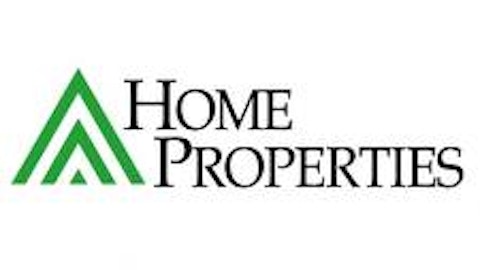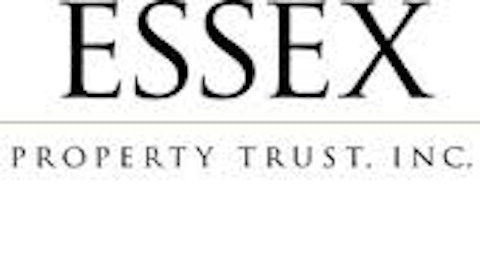Dividend stocks are everywhere, but many just downright stink. In some cases, the business model is in serious jeopardy or the dividend itself isn’t sustainable. In others, the dividend is so low, it’s not even worth the paper your dividend check is printed on. A solid dividend strikes the right balance of growth, value, and sustainability.
Today, and one day each week for the rest of the year, we’re going to look at one dividend-paying company that you can put in your portfolio for the long term without too much concern. This isn’t to say that these stocks don’t share the same macro risks that other companies have, but they are a step above your common grade of dividend stock. Check out last week’s selection.

Renting vs. buying
Right now there’s a war brewing between homebuilders and residential REITs like AvalonBay, which own numerous multifamily apartment communities throughout the U.S.
When the recession hit, some homeowners had no choice but to turn to renting as their cash reserves were depleted or their credit ratings had taken a severe hit. AvalonBay, Equity Residential (NYSE:EQR), and UDR, Inc. (NYSE:UDR) have all benefited from strong rental demand in the past few years. Now, with the housing sector on the mend and the nation’s largest homebuilders, D.R. Horton, Inc. (NYSE:DHI) and Lennar Corporation (NYSE:LEN), recording big profits, the question of whether the apartment boom will continue is up in the air.
D.R. Horton and Lennar are relying on record-low mortgage rates to drive buyers to act, as well as a reduced inventory of foreclosed homes, which is finally allowing both of them to boost home prices and to create a sense of urgency that hasn’t existed in a long time. D.R. Horton reported a 39% increase in new orders and a whopping 62% increase in its backlog in its most recent quarter while Lennar’s sector-leading homebuilding margin improved 660 basis points year over year to 23.5%.
However, there are two primary reasons to believe that the boom in apartment demand will continue for the foreseeable future.
Why renting will win out
For one, a reduction in homes available for sale leaves few options for prospective homebuyers to choose from and could artificially boost home prices in the near term, making it less attractive to buy a home from a buyer’s point of view. That would play into the hands of AvalonBay and its peers from a renting perspective and give them significant rent pricing power.
Also, consumers are likely to be gun shy about purchasing a home unless their economic, or the U.S. economic, situation improves. Earlier this week, we found out that U.S. fourth-quarter GDP shrank 0.1%. Taxpayers are also dealing with the expiration of the payroll tax holiday, further lowering their take-home income in a very low growth environment. This makes renting a significantly safer option at the moment for some.
Why AvalonBay Communities, Inc. (NYSE:AVB) is the top choice
What makes AvalonBay my top choice among apartment REITs is the simple fact that its portfolio is geared toward mid-to-upper-income renters. I admit some bias having lived in an AvalonBay community for about a year last decade, and it was, without question, the nicest apartment community I ever lived in. With AvalonBay’s focus on the upper-income renter, it tends to skirt some of the most common problems that EquityResidential encounters when catering to all income levels, including credit issues, tenants who fail to pay, and varying occupancy ratios.
AvalonBay also consistently delivers consistent funds from operations growth because its focus on higher-quality renters often gives it significant rent pricing power. UDR, which has a wide mix of properties, hasn’t produced an annual operating income since 2005 and was forced to slash its dividend payouts in half in 2009. AvalonBay, on the other hand, has turned in a solid operating profit in each year over the past decade with its dividend staying the same or heading higher year to year.

